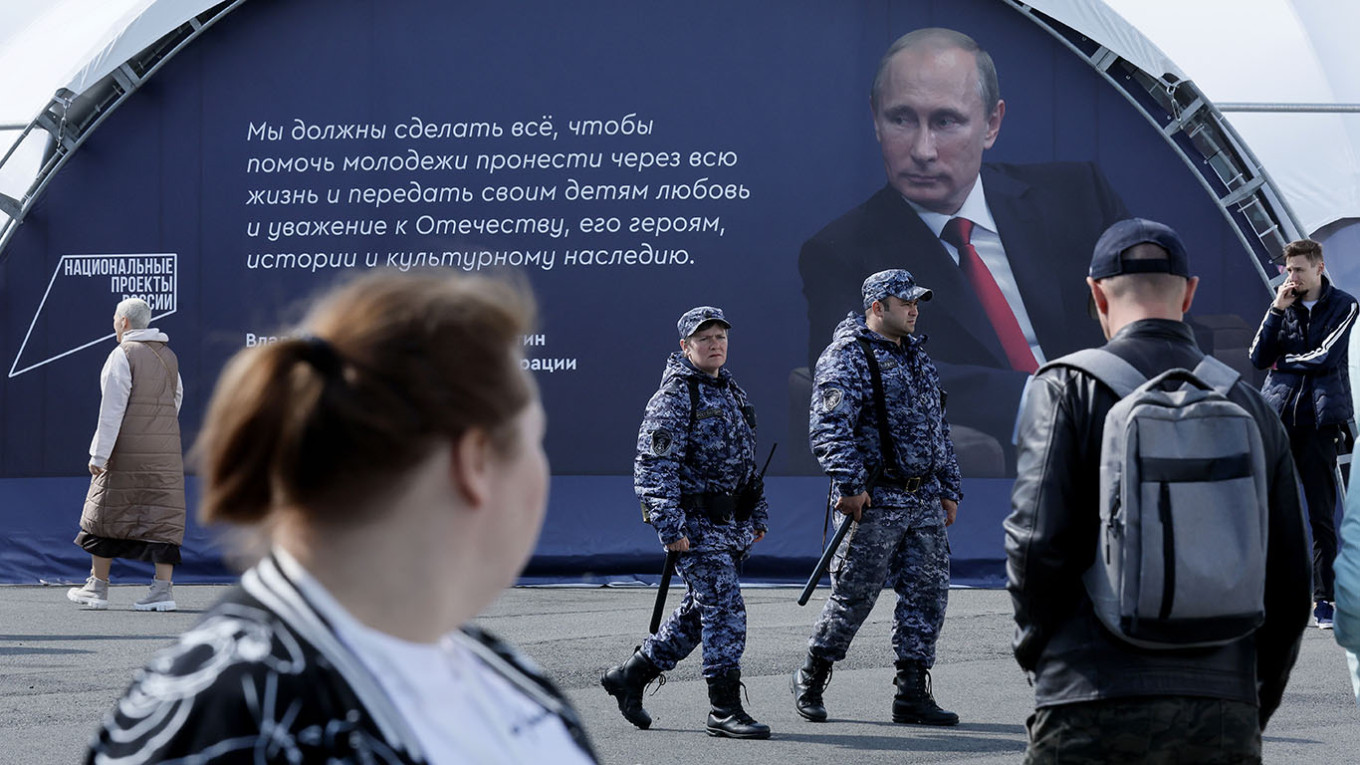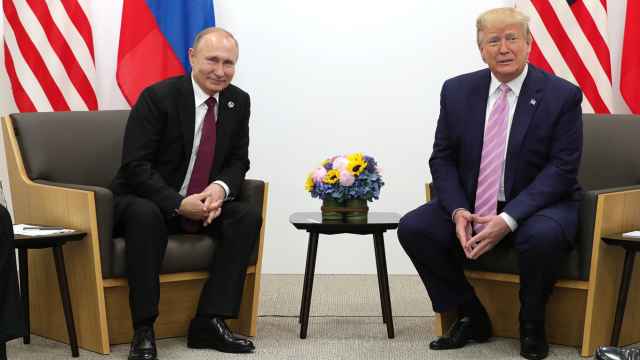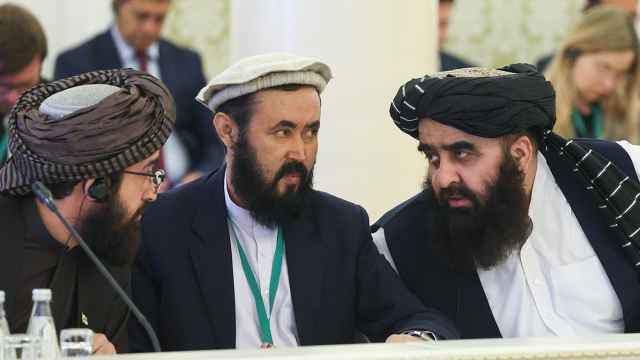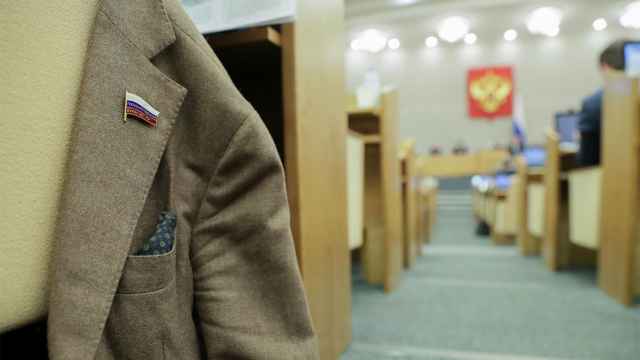President Vladimir Putin on Tuesday signed a long-delayed law aimed at protecting the Russian language, though independent observers say the legislation has been significantly watered down from its original version.
Starting in March 2026, store signs and public-facing notices such as “open,” “closed,” and “sale” will be required to appear in Russian. Translations into other languages will still be allowed, but the Russian-language version must be displayed using the same font, size and color.
“The words ‘open,’ ‘closed,’ ‘sale’ and information signs must be primarily in Russian as a state language,” senior lawmaker Olga Kazakova said last week. “But their translation into other languages is not... prohibited.”
Violations will carry fines ranging from 500 to 10,000 rubles ($6.50–$128) for small or medium-sized businesses.
The law does not apply to advertisements or registered brand names.
The original bill, submitted to the State Duma in late 2023, had proposed much broader restrictions. However, businesses and government officials criticized it as overreaching and legally flawed.
Provisions that would have required advertisements and brand names to appear in Russian were ultimately scrapped.
“The patriotic bill has turned into a shell of its former self. The legislation was cut in half by its second reading,” wrote exiled journalist Farida Rustamova.
Yelena Yampolskaya, the bill’s co-author and now a presidential adviser for culture and the arts, recently complained to Putin about attacks on the legislation. In response, Putin condemned the use of “vulgar and mechanical foreign loanwords that don’t enrich but pollute and distort our language.”
Still, the most notable restriction to remain in the law is a ban on construction companies using the Latin alphabet in the names of new residential complexes. Experts say this will affect less than 7% of the roughly 4,700 complexes currently being built in Russia.
The law will take effect on March 1, 2026.
A Message from The Moscow Times:
Dear readers,
We are facing unprecedented challenges. Russia's Prosecutor General's Office has designated The Moscow Times as an "undesirable" organization, criminalizing our work and putting our staff at risk of prosecution. This follows our earlier unjust labeling as a "foreign agent."
These actions are direct attempts to silence independent journalism in Russia. The authorities claim our work "discredits the decisions of the Russian leadership." We see things differently: we strive to provide accurate, unbiased reporting on Russia.
We, the journalists of The Moscow Times, refuse to be silenced. But to continue our work, we need your help.
Your support, no matter how small, makes a world of difference. If you can, please support us monthly starting from just $2. It's quick to set up, and every contribution makes a significant impact.
By supporting The Moscow Times, you're defending open, independent journalism in the face of repression. Thank you for standing with us.
Remind me later.






